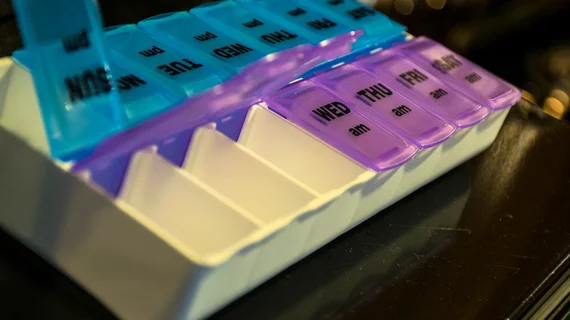Vitamins for CVD prevention? Not so fast, says USPSTF
Vitamin and mineral supplements—including multivitamins—are incredibly popular in the United States. According to a new recommendation statement from the U.S. Preventive Services Task Force (USPSTF), however, the current evidence does not suggest these supplements can necessarily help healthy adults prevent cardiovascular disease (CVD) or cancer.
“We all want ways to prevent heart disease, stroke and cancer, so the USPSTF again reviewed the evidence on whether taking vitamins and minerals helps prevent these diseases,” John Wong, MD, a USPSTF member and the interim chief scientific officer at Tufts Medical Center, said in a prepared statement. “Unfortunately, based on the existing evidence, the Task Force cannot recommend for or against the use of most vitamins and minerals and is calling for more research.”
While the USPSTF could not recommend for or against the general act of taking vitamins to prevent CVD or cancer, the group did emphasize that two specific vitamins—vitamin E and beta-carotene—should not be taken for this reason.
“We found that there is no benefit to taking vitamin E and that beta-carotene can be harmful because it increases the risk of lung cancer in people already at risk,” Michael Barry, MD, vice chair of the USPSTF and a professor of medicine at Harvard Medical School, said in the same statement.
The USPSTF also highlighted the importance of other lifestyle choices—following a healthy diet or exercising, for example—that people can make to prevent CVD and cancer.
The full recommendation statement is available in JAMA.[1]
Back in April 2022, the USPSTF published its updated recommendations related to taking daily aspirin for CVD prevention. Barry spoke to Cardiology Business about those recommendations in an exclusive video interview.
Related U.S. Preventive Services Task Force Content:
USPSTF updates its stance on aspirin use to prevent CVD, sees no benefit for patients 60 or older
VIDEO: USPSTF official discusses new low-dose aspirin recommendations
USPSTF shares updated recommendations on statin use to prevent CVD
Reference:

